 |
| This is Inveraray Castle in Scotland, the seat of Dukes of Argyll, chiefs of Clan Campbell. |
The United Kingdom (commonly called the UK) may be a confusing term for some. So here’s the breakdown of common terms used for this area: United Kingdom consists of English, Scotland, Wales, and Northern Ireland. Great Britain is the island that includes Scotland, England, and Wales. Britain can refer to Great Britain or the UK in general. British is used to refer to people and things from Great Britain and/or the UK. England is one of the countries (and largest one) that makes up part of Great Britain. English refers to people and things from England and also refers to the language. Northern Ireland is part of the UK and found on the island of Ireland, but separate from the Republic of Ireland, which is its own country. Scotland is a country found in the northern part of Great Britain. Scottish refers to people and things from Scotland. Scotch is only used in certain names of things like Scotch tape, Scotch whiskey, and Scotch eggs. Gaelic is a Celtic language including Irish, Manx, and Scottish Gaelic. Wales is a country in the southwest corner of Great Britain. Welsh refers to people and things from Wales and also the name of their language. Celtic is a branch of languages that includes Irish, Scottish Gaelic, Welsh, and Breton.
The United Kingdom is located in the northwest corner of Europe. The island of Great Britain is just east of the island of Ireland across the Irish Sea. The Isle of Man sits in between northern England and Northern Ireland. Across the English Channel, you’ll find mainland Europe, almost directly across from the Netherlands, Belgium, and France. Interesting enough, London (and more specifically, the Royal Greenwich Observatory) was chosen for the placement of the Prime Meridian, or 0º longitude. (The 180º longitude is also called the antimeridian.) England is mostly lowland terrain with some mountains. Scotland is known for its highland moors and nearly 800 islands, including the famous Hebrides, Shetlands, and Orkneys. Wales also has some mountainous areas as well. Northern Ireland is fairly mountainous and contains a rather large lake called Lough Neagh. (And on top of this, there are also 14 territories outside of the UK but part of its sovereignty known as British Overseas Territories as well as three Crown dependencies.) Most of this area falls under a temperate maritime climate but some of the northern Scottish islands may experience tundra and subarctic climates. In other words, it’s cold and rainy much of the time. Except when it’s not. (Haha.)
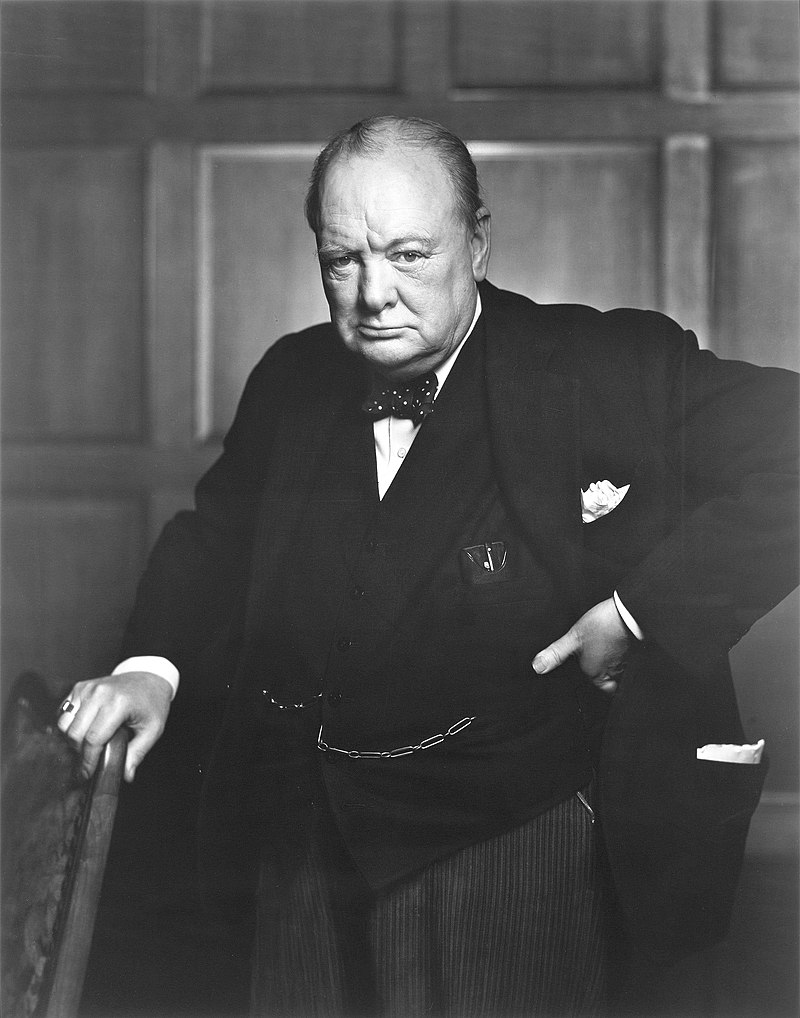 |
| Sir Winston Churchill |
People have been living in this area since nearly 30,000 years ago, having come in waves over the centuries, mostly as Celtic, Brittonic, and Gaelic settlements. The Romans arrived in 43 AD and controlled the southern portion of Britain for 400 years (many of the roads and cities they established are still around today), followed by Germanic Anglo-Saxons. Gaelic speakers connected with the Picts to create the Kingdom of Scotland in the 9th century. The Normans and Breton allies in northern France invaded England in 1066 and took over much of Ireland, Wales, and even up into Scotland. They brought along two major things that greatly impacted their society: feudalism and a ton of French words that entered the language (pardon my French!). During the Medieval period, English kings conquered Wales but failed to conquer Scotland who maintained their independence for a while more (och, that’s right). They were also involved with many conflicts in France including The Hundred Years War (which was actually 116 years long), and Protestant churches were introduced after the Reformation. James VI, King of Scots, united England, Scotland, and Ireland together in 1603, and a half-century later were all at each other’s throats again. Starting around this time, English sailors were committing acts of piracy throughout Europe and the Caribbean as well as trying to establish colonies around the world (mainly North America and Caribbean at this point). Not long after the Jacobites were defeated at the Battle of Culloden that thwarted Scottish independence (where my Outlander fans at?), Britain lost the Americans colonies to independence. To make up for lost revenue from price gouging the American colonies, they dabbled in the African slave trade for a while (and by dabbled, I mean, were completely horrible people about it). War was almost a pastime with the British; they were always involved in someone’s skirmishes somewhere. Britain fought against Germany and its allies during WWI and were given control of many former German and Ottoman colonies afterwards. After WWI Ireland broke away from the UK, but Northern Ireland stayed. Britain fought against Germany again during WWII under the direction of Winston Churchill as prime minister. For several decades after WWII, Britain granted independence to many of its colonies and protectorates around the world. In 2014, Scotland put independence to a vote and it was defeated. However, two years later, the UK voted to leave the EU (known as Brexit), a vote I’ve read that many British citizens have come to regret once they realized what that actually meant.
London is the capital of England and the United Kingdom, and it’s also the largest city. A major global city, it was originally settled by the Romans as Londinium in 47AD. It is famous for such landmarks as Buckingham Palace, the Royal Observatory, the Tower of London, Kew Gardens, the London Eye, Piccadilly Circus, Trafalgar Square, Tower Bridge, among other historical sites. Located on the River Thames, the city now has close to 9 million people and serves as the center for government, commerce, transportation, education, culture, and entertainment. It’s famous for its high quality universities; its museums (like the British Museum and the National Gallery); its West End theatre district; having hosted the Olympics in 1908, 1948, and in 2012; and the Wimbledon Tennis Tournament.
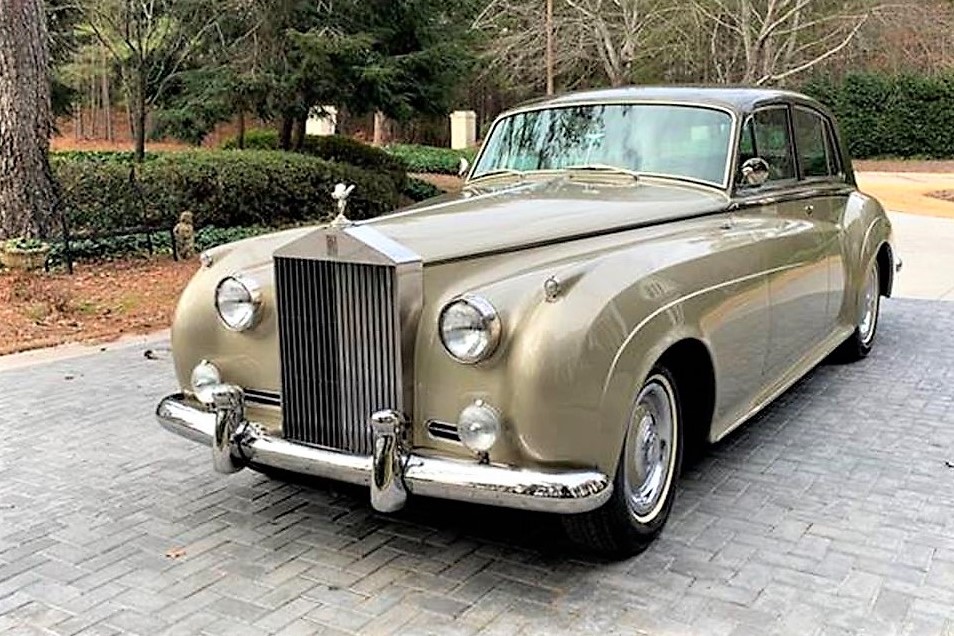 |
| Rolls Royce, one of the oldest auto manufacturers in the UK. |
The UK has the second largest economy in Europe, next to Germany, and it comes in fifth in the world. Using the sterling pound (and not the euro), the service sector makes up the vast majority of its GDP, although there’s some significant contributions in agriculture and tourism. The UK was the birthplace of the Industrial Revolution that spread to much of the commerce centers of the world. Early on, they were really known for shipbuilding and steelmaking, which eventually led to a strong market for automobile manufacturing, aerospace industry, and pharmaceutical industry. Both England and Scotland had numerous scientists who made world-changing scientific discoveries: Alexander Fleming, Francis Crick, James Watt, Charles Babbage, Alexander Graham Bell, Alan Turing, Stephen Hawking, Isaac Newton, Charles Darwin, among many others.
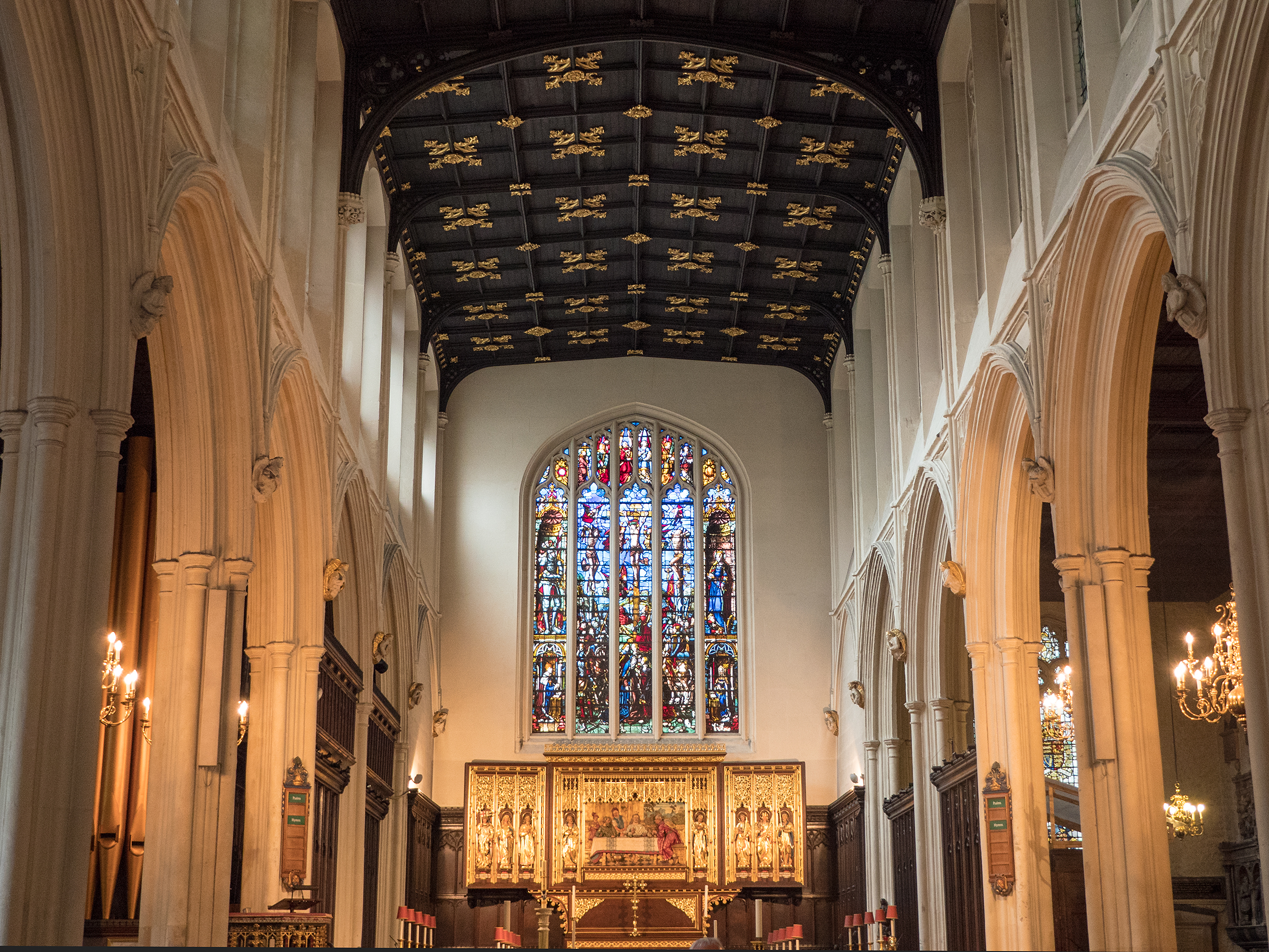 |
| Inside St Margaret's in Westminster |
Christianity has been in England for nearly 1400 years, which played an important part of its history for many centuries until around post-WWII when church attendance dropped off. Of the Christians in the UK, many people follow various Protestant churches, the Church of England, the Church of Scotland, and the Roman Catholic church. With immigration, it became a much more religiously diverse place to include Muslims, Buddhists, Hindus, Sikhs, and Jewish followers. Not to mention the large number of people who just don’t adhere to any religion at all, especially among the younger crowd.
Nearly 95% of the people in the UK are monolingual in English (with the remaining speaking a language through immigration: various languages of India being the largest group and Polish coming in second place). Several Celtic languages are still spoken here (and gaining speakers) including Welsh, Scottish Gaelic, and Irish (Duolingo now offers lessons in all three of these languages. I've tried Scottish Gaelic--it's really difficult!), and a few people trying to keep Cornish alive. Scots, related to Middle English, and Ulster Scots, spoken in Northern Ireland, is gaining recognition.
There used to be a saying that went, “The sun never shines on the British Empire.” It refers to the time when the British had a colony, territory, or protectorate all over the world. They were one of the largest empires in the world at one time. According to Statista, out of the 196 countries (depending on how you count them), only 22 have never been invaded by the British Empire: Andorra, Belarus, Bolivia, Burundi, Central African Republic, Chad, Republic of the Congo, Guatemala, Ivory Coast, Kyrgyzstan, Liechtenstein, Luxembourg, Mali, Marshall Islands, Monaco, Mongolia, Paraguay, São Tomé e Principe, Sweden, Tajikistan, Uzbekistan, and Vatican City.
Up next: art and literature
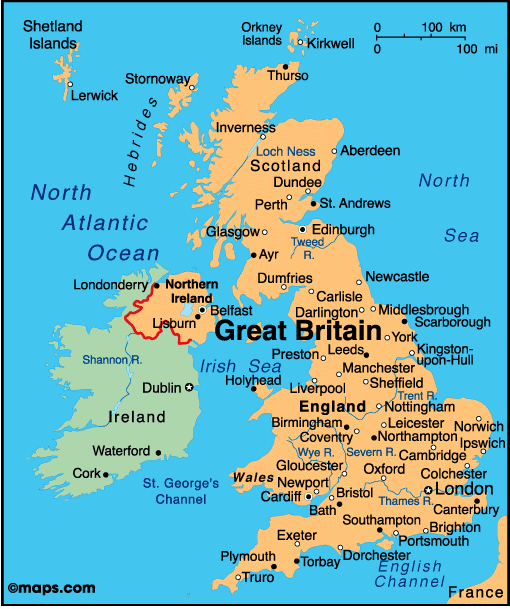
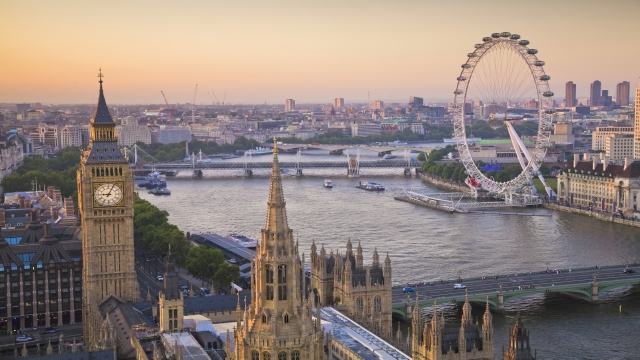
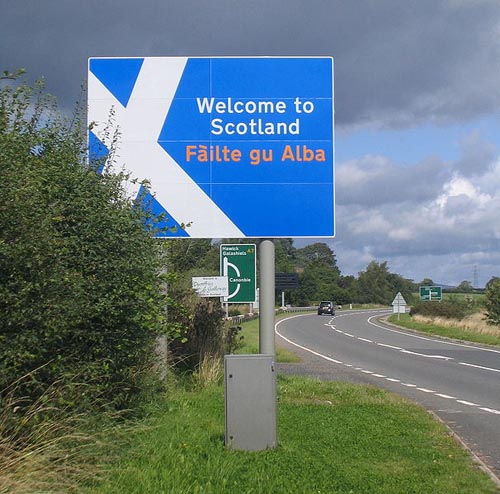

No comments:
Post a Comment